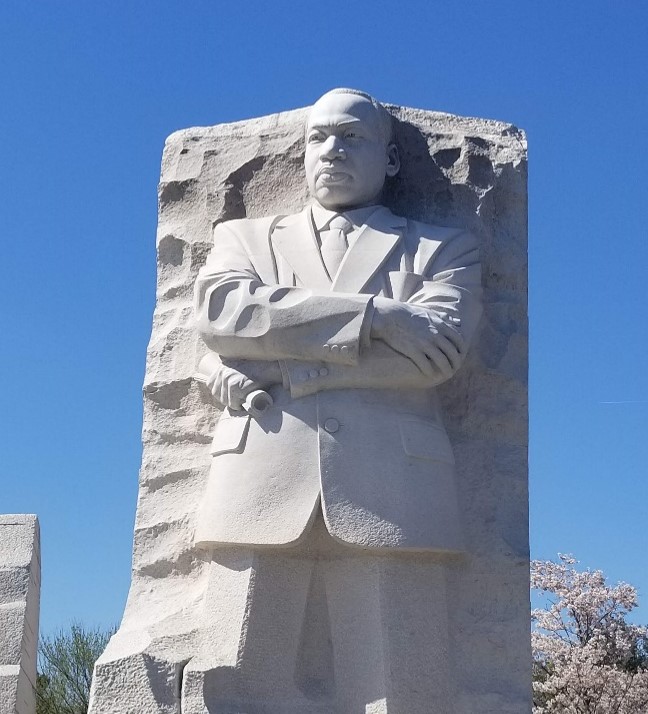MLK’s Letter: Words That Matter
In honor of Martin Luther King, Jr. Day this year, I am re-reading King’s “Letter from a Birmingham Jail.” I’m haunted by his words. Most of us came to admire King for his oratory skills. But King’s superpower was his wordcraft, wielding prose as a sword or a torch or a paintbrush, rendering a better future and defining the path to travel to reach that destination. This letter, written by King in 1963, is timeless, still drawing upon our imagination and courage to make change, seek justice, or pursue equality for all.

(Photographer: D. Roosendaal)
Reading this epistle that King penned while detained in a Birmingham jail after being accused of unlawful assembly reminded me, first and foremost, King was a Reverend, embracing deeply held religious beliefs and employing his depth of theological training with ease. He could also have easily been an attorney with his finely layered arguments and logical takedown of the many obstacles he’d encountered from the Establishment while trying to exercise basic civil rights. The moral distinction he draws between just and unjust laws is dazzling as it is convincing.
But it is King, the writer, that I admire most about this seminal work. King’s masterful use of the English language is filled with poetic prose peppered with emotional sleight of hand, all built upon words that ring against the mountaintop, bursting with inspiration. “One day the South will know that when these disinherited children of God sat down at lunch counters, they were in reality standing up for what is best in the American dream…bringing our nation back to those great wells of democracy which were dug deep by the founding fathers in their formulation of the Constitution and the Declaration of Independence.”
The letter was originally a response to an open letter titled “A Call for Unity,” crafted by eight White clergymen whom King considered moderates but who criticized King’s timing for holding the protest, among several other weak-kneed complaints. While King’s intended audience might have been these individual preachers, he speaks to all Americans, then and now, who will listen with an open heart. Among the many persuasive elements, this letter is proof that words matter.
King artfully explains why waiting for justice is no longer acceptable. “We have waited for more than 340 years for our constitutional and God given rights…but we still creep at horse and buggy pace toward gaining a cup of coffee at a lunch counter.”
He articulates, through a child’s eyes and with a gut punch, the damaging psychological interpretations of worth that society frequently signals to the Black individual. When trying to explain to his daughter that Funtown (a local amusement park) was closed to Black children, he describes how he sees “ominous clouds of inferiority beginning to form in her little mental sky, and see her beginning to distort her personality by developing an unconscious bitterness…”
King rebukes leaders for a variety of universal sins like talking too much and listening too little. “Too long has our beloved Southland been bogged down in a tragic effort to live in monologue rather than dialogue.” To the accusation that King was an outside agitator, he replied: “Injustice anywhere is a threat to justice everywhere.”
Essentially, King frames up the entire Civil Rights movement in this one letter and all the reasons why it is critical to America. As with almost all encounters with King’s writing, I am left with a powerful vision for what America could be if we, her citizens, could just find the courage to make it happen. I imagine King wouldn’t have wanted this piece to be timeless. He would have desired for it to be a historical record of the strife and tensions of the Civil Rights Movement in 1963. We are almost sixty years past its writing, and yet I wonder, does it resonate today because of its current relevance? Yes, many circumstances have improved since the 1960s, but much remains undone. Perhaps we have achieved some of his vision, but what of its entirety?
If you have thirty minutes on Monday’s holiday, grab a cup of coffee and settle in for a read of this masterpiece. It’s worth every second. Every word.
If you decide to read Dr. King’s letter, I would love to hear your thoughts and inspirational take-aways.



Great tribute to MLK ?